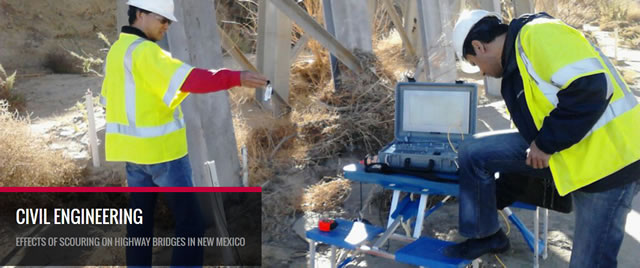
Civil Engineering ETDs
Publication Date
Spring 5-11-2024
Abstract
Cracking is the most prevalent distress in an asphalt concrete (AC) pavement, and it leads to structural deterioration and premature failure, thereby costing taxpayers a lot of dollars. Accurately assessing AC's cracking performance is necessary for pavement longevity, yet current methods often fall short. For instance, relying solely on binder creep tests to determine low-temperature grade inadequately predicts the AC pavement's low-temperature cracking problem. Understanding AC's loading rate- and temperature-dependent fracture behavior is crucial for gaining insight into the crack propagation in AC. In the first part of this study, a new physics-based analytical methodology is developed utilizing the bending beam rheometer and indirect tensile test data to predict the critical cracking temperature of AC. In the second part, a loading rate- and temperature-dependent crack model for AC is developed based on the phase field fracture concept. Both methods offer valuable advancements in accurately assessing AC pavement cracking behavior.
Keywords
Asphalt Concrete, Cracking, Modeling, Phase field fracture, Low-temperature cracking
Document Type
Dissertation
Language
English
Degree Name
Civil Engineering
Level of Degree
Doctoral
Department Name
Civil Engineering
First Committee Member (Chair)
Dr. Rafiqul A. Tarefder
Second Committee Member
Dr. Tang-Tat Ng
Third Committee Member
Dr. Yu-Lin Shen
Fourth Committee Member
Dr. Maryam Hojati
Recommended Citation
Hasan, Md Amanul. "Multi-Physics-based Modeling of Cracks in Asphalt Concrete." (2024). https://digitalrepository.unm.edu/ce_etds/325
